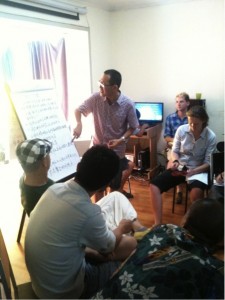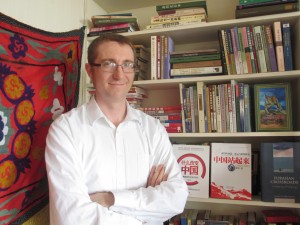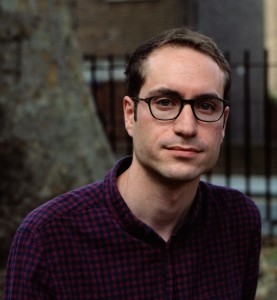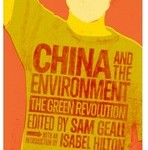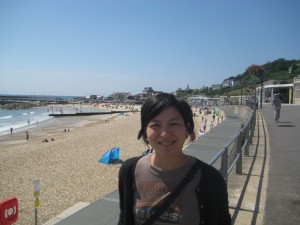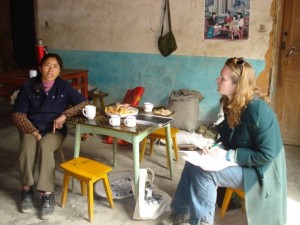Citizen Media in Russia, Central and Eastern Europe,
China and East Asia, and the Arab World
An interdisciplinary doctoral/postdoctoral training workshop
27-28 January 2014, The University of Manchester
Deadline for Submission of Abstracts: 22 November 2013
Call for Contributions from Doctoral Students and Early Career Researchers
The term ‘citizen media’, or ‘participatory media’, covers a wide range of activities undertaken by ordinary, non-professional citizens who lay a claim to an area of public life and politics and seek to transform it in some way. From videos circulated on Youtube to graffiti, street performance and other forms of street art, and from community radio to blogging, crowd sourcing, tweeting, flashmob protest and hacktivism, new forms of civic engagement continue to develop, expand and shape the relationship between the private and the public, the local and the global, mainstream and alternative media, corporations and clients, the state and civil society. The aim of the workshop is to bring together doctoral students and early career researchers who work on citizen media in Russia and Central and Eastern Europe, China and East Asia, and the Arab world – areas where citizen media has been at the centre of political contestations, censorship and everyday struggles. The workshop will focus on methodological challenges of researching citizen media, whether these are conceptual, practical, ethical or political.
We welcome proposals for 15-minute presentations which discuss any topic relating to the methodologies of researching citizen media in any of these regions. Papers should reflect the current research of postgraduates or early career researchers. The workshop will also include a guided training session on methods, and several presentations by expert scholars (detailed below). To apply, please send a title and a 300-word abstract togabrielle.hendry@postgrad.manchester.ac.uk by the 22nd of November 2013.
The event is free of charge and open to doctoral students and early career researchers. Limited funds are available to cover travel and accommodation expenses. To apply for funding assistance, please indicate so on your submission, and outline the estimated cost of your travel. Successful candidates will be notified in December.
***
Please check our website for updates http://citizenmediamanchester.wordpress.com/
The event is organised by Adi Kuntsman, Mona Baker and Elena Barabantseva, and sponsored by The Centre for East European Language-Based Area Studies www.ceelbas.ac.uk/ , Centre for Russian, Central and East European Studies http://www.gla.ac.uk/schools/socialpolitical/crcees/ , White Rose East Asea Centre http://www.wreac.org/ , Centre for the Advanced Study of the Arab World http://www.casaw.imes.ed.ac.uk/ and The British Inter-University China Centre www.bicc.ac.uk
Provisional Programme
1. Theory and methods workshop
Luis Pérez González, The University of Manchester, UK:
‘Theoretical and Methodological Perspectives on Citizen Media’
The first part of this workshop will deliver an overview of key theoretical approaches and conceptual networks driving current research on citizen media and different instances of self-mediation. Participants will then be introduced to a range of methods of data collection and analysis in the field, with particular emphasis on qualitative approaches. The final part of the session will involve an interactive discussion of two exploratory case studies illustrating different theoretical and methodological perspectives on the study of citizen media.
2. Art and pedagogy workshop
John Johnston, Goldsmith College, UK
3. Plenary 1
Astrid Nordin, Lancaster University, UK: ‘Ironic ‘Resistance’ in Chinese Citizen Media Online’
The ‘online generation’ of Chinese citizens, or ‘netizens’, have developed numerous strategies for criticizing and avoiding the heavy online censorship regime to which they are subjected. One aspect of the ironic ego culture of particular interest here is the play with homonymous or near-homonymous words that can help an individual evade censorship software whilst simultaneously critiquing and ridiculing this censorship. Where the methodology of previous scholarship has attempted to pin down this form of expression to mean only one thing (resistance to politics, Bakhtinian carnival), this presentation argues that what is methodologically most interesting about these homonyms is their undecidability as simultaneously either/or and neither/nor. Such a methodological approach can make us better appreciate the complexity of this aspect of Chinese citizen media beyond the resistance/not-resistance binary.
4. Plenary 2
Georgiana Nicoarea, University of Bucharest, Romania, ‘Cairo’s Graffiti Goes Vir(tu)al. Facebook walls, their graffiti avenues and the afterlife’
The graffiti of downtown Cairo has become one of the trademarks of the January 25 Revolution. What looked at first like an over-productive artistic practice appears to be fuelling, through its overwhelming presence, the construction of the revolution’s imagery. Egyptian graffiti has travelled in various forms from real-life walls to Facebook walls and from there to official media and bookstores. This dynamic was initiated by what seemed to be a very natural step into virtual space where liberation graffiti accompanies citizen media and illustrates creative netizen activism. What can this journey tell us about the dynamics of Cairo’s urban inscriptions? Can the virtual public’s interaction with graffiti give more information about its outreach? Does this exposure help Cairo’s graffiti go viral or just virtual? These are the key questions that will be addressed in this talk.
5. Plenary 3
Eugenia Nim, Russian Presidential Academy of National Economy and Public Administration Humanities Research Center (Moscow), Altai State University (Barnaul), Russia: ‘”Nanodemonstrations” as Media Events: Networked Forms of the Russian Protest Movement’
‘Nanodemonstrations’ first became part of the Russian protest movement in 2012. Originating in the northern town of Apatity, a wave of ‘doll protests’ – demonstrations and other citizen actions which were staged by using lego dolls and soft toys – swept over many Russian cities. Forbes Magazine included the nanodemonstrations which took place in the Siberian city of Barnaul in the list of ‘the 12 loudest art protest actions in Russia’. The activists used social media to organise these actions; nanodemonstrations were planned as media events from the start. In my talk, I will attempt to apply different methodological approaches to the phenomenon of nanodemonstrations – from the theories of mediatisation of politics to the conceptions of contested urban spaces. My discussion will offer the potential theoretical models and frameworks that can be developed to analyse similar mediatised and theatrical forms of civil resistance.
 Congratulations to BICC researcher Dr Anna Lora-Wainwright, who has been awarded a 2013 Philip Leverhulme Prize in Geography.
Congratulations to BICC researcher Dr Anna Lora-Wainwright, who has been awarded a 2013 Philip Leverhulme Prize in Geography.
